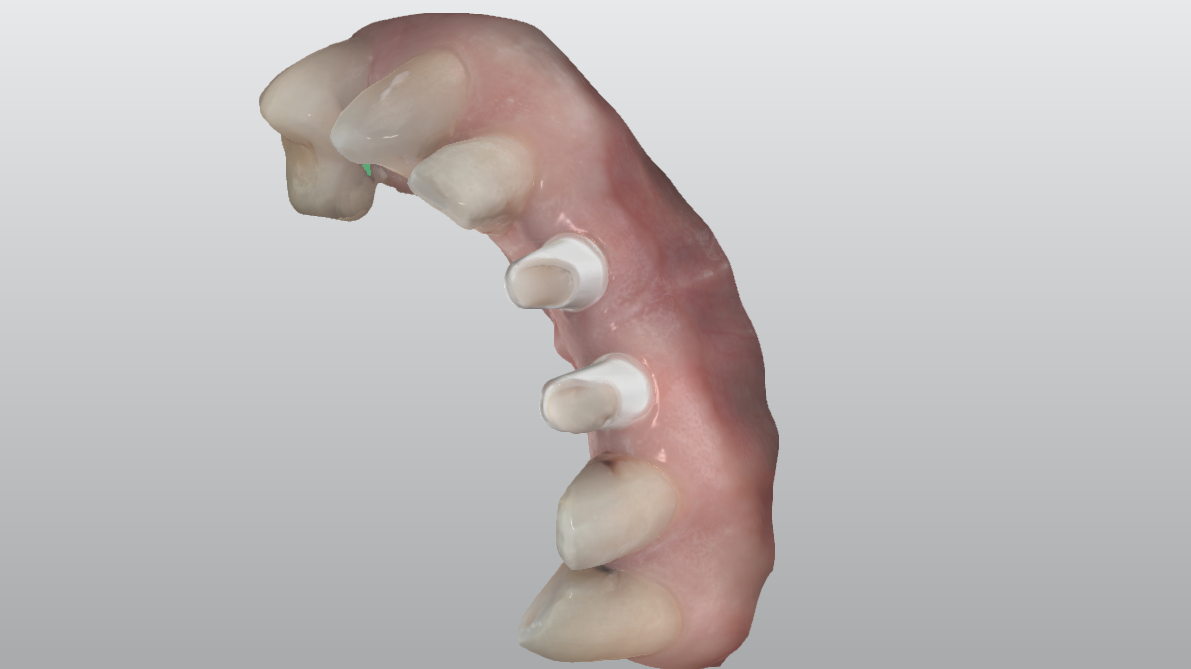Benefits of Ceramic Dental Implants (Metal free Implantology)
Biocompatibility and Optimal Osseointegration
The ceramic implant is made from Zirconia which is a biocompatible material that creates total assimilation of the implant into jaw bones. Ceramic implants show optimal osseo-integration having no signs of inflammation or any foreign body rejection.
Aesthetics
One of the common negative aspects of using titanium implants is its poor aesthetics. Patients who have thin and translucent gums or who are susceptible to gum recession (which is common among aging people) can have gray gums or will have titanium line being visible on the margin of the crown. As zirconia is nonmetallic and white-colored., it is more natural looking compared to titanium. It provides a perfect base color which is very close in appearance to the natural color of teeth in the first place.
Allergies & Sensitivities:
The implants made of ceramics are hypoallergenic, unlike in the case of implants made of titanium. But it is surprising that there are many cases of titanium implant sensitivity coming up after years of surgery with complaints of itchiness and inflammation developing around the implant location. This is a perfect scenario for causing bone loss and possible failure of the implant.
In the present age, an increasing number of people are affected by allergies, compromised immunity and skin sensitivities and hence implants made of metal devices should be carefully scrutinized beforehand, mainly because it is not a simple procedure to remove a titanium implant from the jaw bone.
Hence, MELISA testing should be considered before selecting an implant system. MELISA is an innovative diagnostic tool for identifying metal allergies and sensitivities.
Non-conductivity of ceramic:
One of the main benefits of zirconia arises from the fact that zirconia is not a good conductor of electric charge. Because of its non-conductivity, bacterial growth is less likely to take hold on the surface of the zirconia implant; this contributes to the building of the oral environment promoting healthier gums.
Corrosion Resistant:
Ceramic is a biocompatible material being resistant to chemical corrosion and will not conduct electricity or heat. Being a bio-inert material, it will not trigger any chemical reaction or migrate to any other location in the body or affect the maintenance of optimal oral health.
But it is quite different in the case of titanium. It is scientifically demonstrated that a titanium implant corrodes in the moist environment of a mouth, more so in cases where there is a metal in the vicinity such as amalgam fillings, bridges or gold onlays or inlays or alloy metal crowns that trigger chemical reactions.
Metal corrosion occurs more aggressively in presence of fluoride found in toothpastes, water supplies and mouthwashes. It attacks titanium implant surfaces. Numerous studies have shown that titanium will migrate into surrounding tissues including even lymph nodes in the vicinity.
Strength and Durability:
One among the most important features of success of this innovative system is the long term success of the Ceramic implants. Built to withstand huge masticatory forces, the Ceramic implants compare with the best in nature along with their bioinert characteristics and tooth-like contours. Zirconia is famed for its durability along with inflexibility under pressure, both being key traits for dental devices. Additionally, they offer stability without the help of messy adhesives.
Comfortable:
With the ceramic implants patients undergo shorter implant processes and find a considerable increase in functions and comforts because of their biocompatibility and strength of zirconia. Overall, for the patient, the ability to chew and bite is exactly similar to natural teeth.
Holistic-friendly:
Ceramic implants do not affect movement energy through the meridians of the body and as these are bioinert, they offer perfect tooth replacement for patients who follow principles of holistic health.
One-piece design:
Conventional titanium implant system consists of two metal parts: a part lodged into jawbones and the abutment visible on the gum-line, which are joined with fixing screw together. There could be micro-movements at the meeting surfaces of these pieces under extreme pressure applied during chewing which create warm and moist areas providing an opportunity for anaerobic bacteria to colonize. This creates a perfect environment that can lead to events such as: bacteria releasing toxins, causing inflammation around the implant, which leads finally to bone loss and potentially implant failure.
During the past decades, because of their proven strength and aesthetic superiority, more ceramic components are incorporated in dentistry. There is a trend to use all-ceramic implant abutments and crowns in dental treatments, but now the implant is available in one-piece design made of biocompatible zirconia. These have set the stage for final tools in optimal function and aesthetic beauty.
One-stage surgery
Ceramic implants are built for immediate replacement after tooth extraction. Such one-stage surgical approach minimizes time for implantation while maximizing comfort. Additionally, it could be less invasive surgery as there is no chance of infection and sufficient bone mass is present at the implant site.
Maintenance
The ceramic implants are quite easy to maintain as they don’t attract bacteria-loving plaque.
WhiteZ Dental is helping many clients from abroad to get ceramic implants done at an affordable price. If you are looking for a metal free implant at an affordable cost then you can get your Ceramic Dental Implants in India at WhiteZ Dental, Bengaluru.
About the Ceramic Implant Expert –
Dr.Saurabh Gupta is a well-renowned Ceramic Implantologist in the world, located in Bengaluru, India. He practices at WhiteZ Dental. He is also the Education Director of International Academy of Ceramic Implantology, USA.

